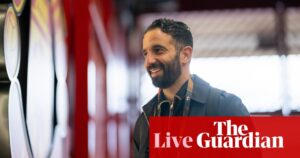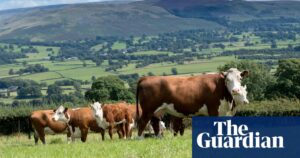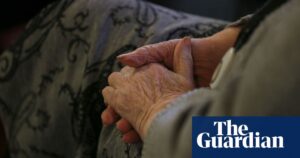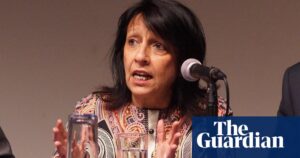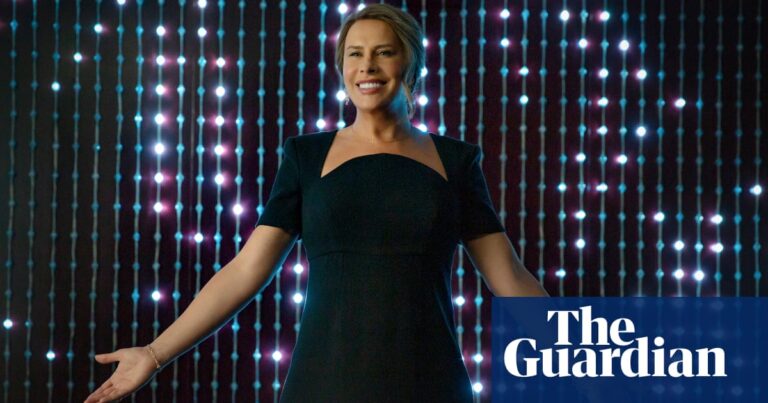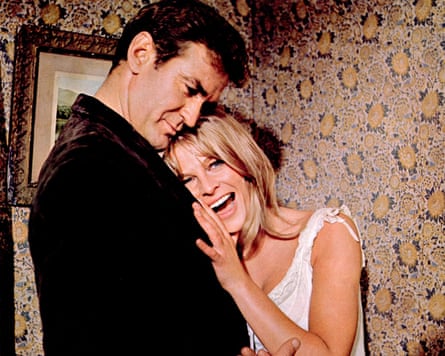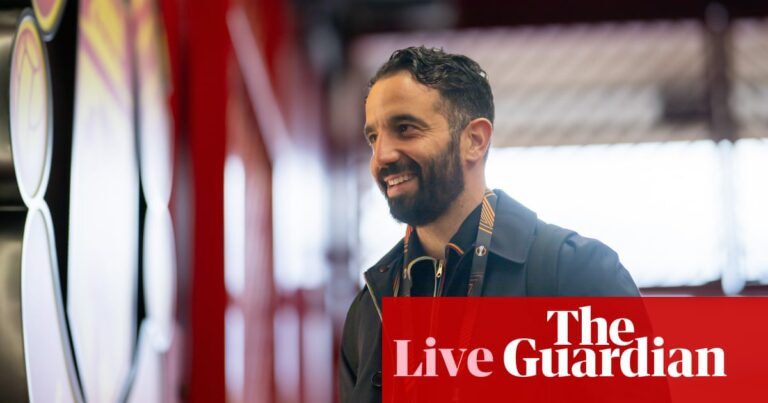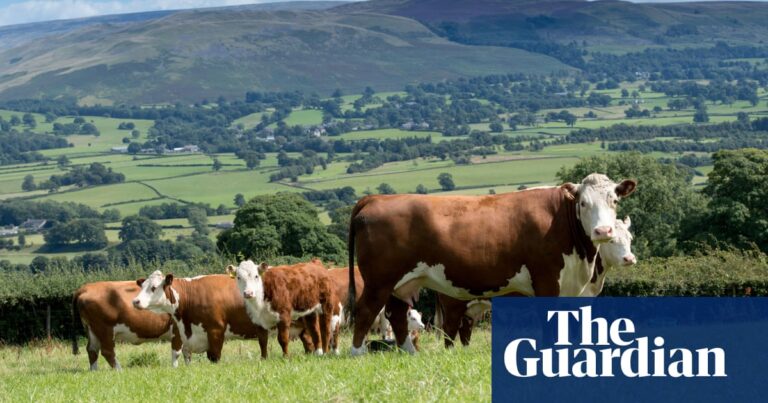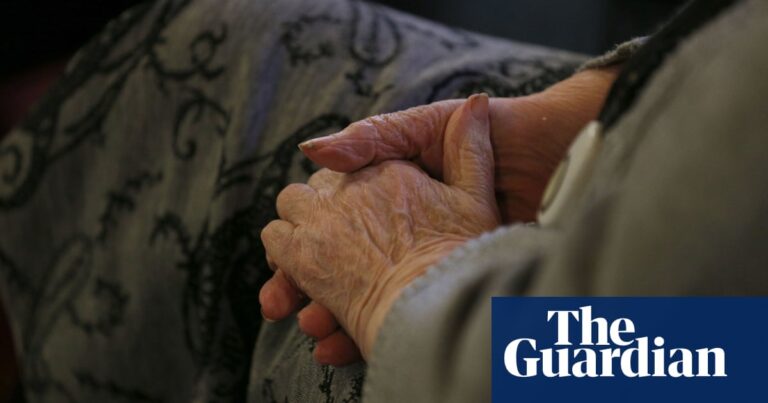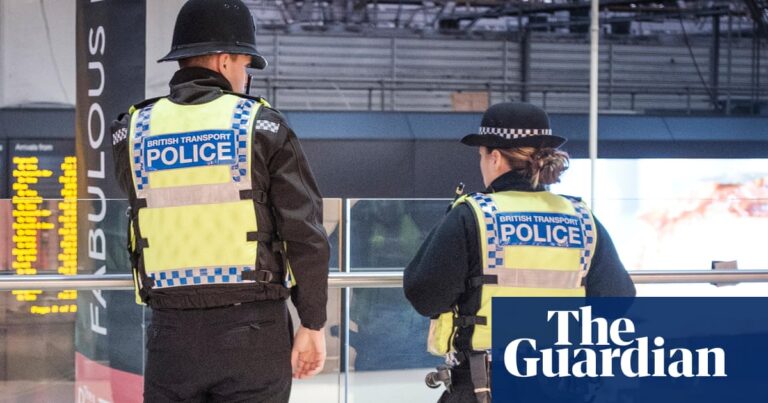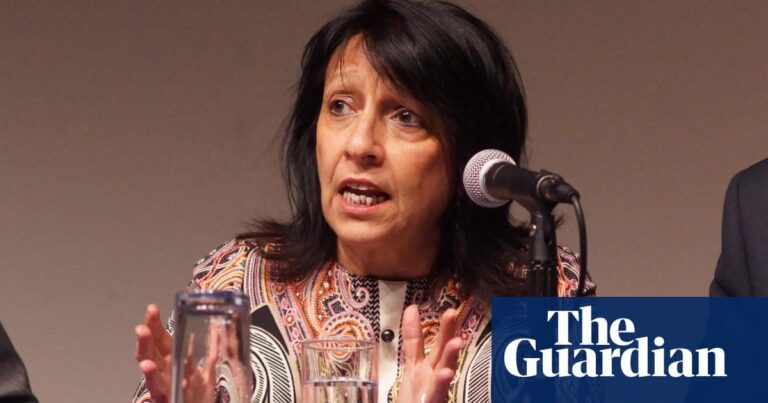Forty years on, Yared Markos’s memories of famine in rural Ethiopia are vivid.
His father was a geotechnical engineer, and as a boy he travelled with him from the city to his east African homeland’s countryside.
In what he remembers as an early warning of climate crisis, Yared, 48, recalls seeing people reduced to eating grass, or starving to death with their livestock rather than break taboos that existed, in some areas and contexts, on killing cows.
He also recalls the effect of Band Aid, the all-star charity single that has been reworked for 2024, and the “annoyance” felt, in spite of the good he feels the fundraiser did, that a nation that has seen rapid economic growth since the famine, a cradle of civilisation, should be defined by its troubles.
The Afrobeats artist Fuse ODG has said negative perceptions the song created did more harm and than good for Africa, while Ed Sheeran said his permission had not been sought to have his vocals featured on new version, and would have refused if he had been asked, because his “understanding of the narrative has changed”.
In the UK’s Habesha community – including people from Ethiopia and Eritrea, which, at the time of the 1984 famine, were one country at war – opinions of the song and its legacy are nuanced.
“At the time it was really positive,” says Yared, who runs Kaffa Coffee in Dalston, east London and a sister shop and a restaurant, recalling how the song challenged the then military dictatorship’s propaganda that the world didn’t care. “Everyone was happy. But it became annoying, five or 10 years later. The news kept showing it and people got embarrassed.”
Recalling when aid began arriving in the aftermath of the original Band Aid song, he adds: “I remember lots of aeroplanes, biscuits and sweets and cake all over Addis [Ababa, the capital] – we didn’t need cake! People were even sending gold.
“It was one of the greatest times of my life, thinking lots of famous people – Michael Jackson [who sang on We Are the World], George Michael, Bob Geldof – are singing for us. It felt like the world coming together and helped modernise the country.”
Red Sea Bar and Cafe in Moss Side is at the heart of Habesha life in Manchester. There, Zed Berhe, 40, who came to the UK from Eritrea, describes, over a plate of traditional lamb tibs, the impact stereotypes from the 80s still have.
“The first thing that comes to the head, when someone says Ethiopian, to many people, is someone who comes from poverty. But not everyone in Ethiopia was starved. Even today, some people would rather say they are Habeshan than Ethiopian.”
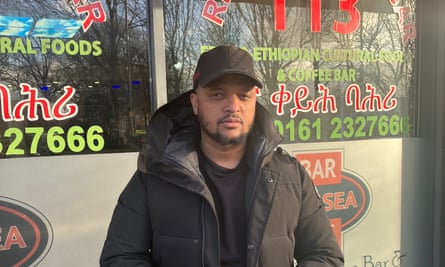
Charity campaigns using images of emaciated children are part of the problem, says the bar’s owner, Filemon Kesete, 44. “I feel bad about the adverts,” he adds.
Filemon, like Yared in London, is redefining his community’s image in the UK through food. There has been a surge in interest in Ethiopian and Eritrean cuisine from British foodies, and Yared describes “young, working-class people” cycling across London for vegan dishes.
after newsletter promotion
It gives Yared hope that there are opportunities to thrive in Britain, something Zed, who, 20 years ago, travelled across the Sahara by camel, and clung to the bottom of a lorry from Calais, feels acutely, having escaped repressive military service to find “freedom” in Greater Manchester.
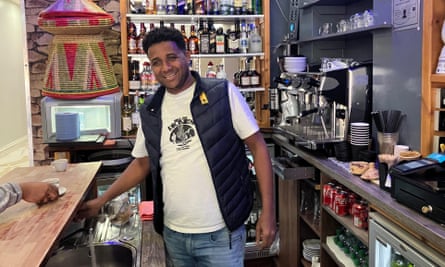
While Zed questions how much aid reaches ordinary people, Harur, 63, another of Red Sea’s regulars, is adamant Band Aid and its concert equivalent, Live Aid, were well intentioned.
“The initiative is good – to help people is a good thing,” Harur says, although he adds that “aid is not a long-term solution”, saying Africa needs a “technological revolution” that starts from within.
“Good economics is the prerequisite of democracy,” he says. “What people want is sustainable growth. If there is political justice, economic justice and social justice, you can maintain peace.”
But the title of the Band Aid song still winds him up. “Do They Know It’s Christmas? Christianity is not new for Tigrayans, we are the first, no one is before us,” he says.
“The way we celebrate Christmas is Orthodox,” Zed adds. “We don’t celebrate Santa Claus and elves!”
Source: theguardian.com
